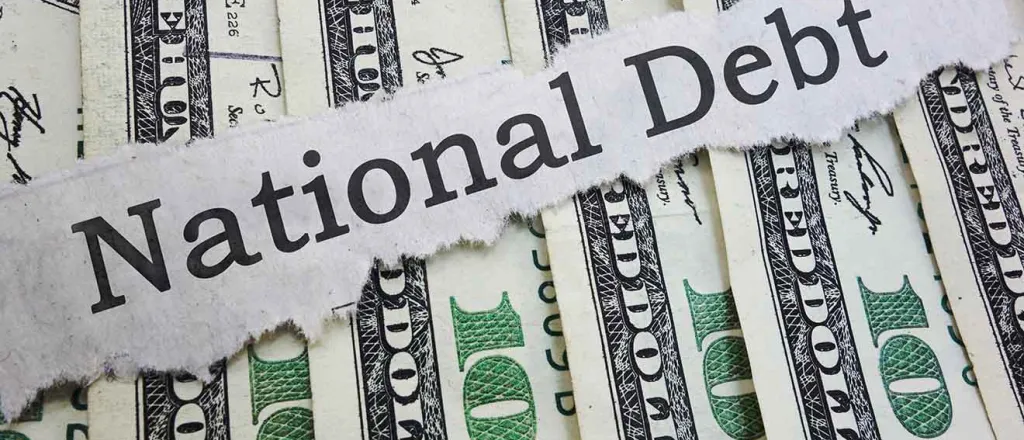
National debt passes $34 trillion
(The Center Square) – The nation's debt has surpassed $34 trillion, according to figures from the U.S. Department of the Treasury.
The nation's growing debt has become a source of concern for some politicians as the cost to service that debt takes up a larger portion of the federal budget.
The gross national debt topped $34 trillion Friday, after hitting $33 trillion in September, the U.S. Treasury confirmed Tuesday.
Maya MacGuineas, president of the Committee for a Responsible Federal Budget, said the new milestone should serve as an alarm for lawmakers and voters.
"We remain hopeful that policymakers will take further measures to reduce our borrowing either by raising taxes, reducing spending, or creating a fiscal commission – or ideally by doing all of the above," she said Tuesday. "We can be a weak divided country where our leaders fight, pander, and take the easy way out while we become increasingly vulnerable, or we can do the hard work to be stronger, more secure, and more prosperous for the long run."

Michael Peterson, CEO of the Peter G. Peterson Foundation, said the new milestone came just months after U.S. debt hit $33 trillion in September 2023.
"Following last year’s debt ceiling deal, we quickly crossed $32 trillion in June, $33 trillion in September, and now we are soaring past $34 trillion. Looking ahead, debt will continue to skyrocket as the Treasury expects to borrow nearly $1 trillion more by the end of March,” Peterson said in a statement.
In November 2023, Moody's Investors Service gave the federal government a negative credit outlook citing large deficits, high interest rates and waning political interest in addressing the nation's deficit. The other two credit-rating agencies, S&P Global and Fitch, grade U.S. credit at AA+. In August 2023, Fitch Ratings made the decision to downgrade the government's credit rating from the highest level of AAA down one tier to AA+. Fitch pointed to the U.S. government’s high national debt and deficits and an "erosion of governance."
The nation's debt is costing taxpayers and the cost of borrowing money is taking up a larger share of the federal budget, which along with the rising costs of Social Security and Medicare, are driving up the national deficit.
Interest costs on the country's debt increased 23 percent to $879 billion in fiscal year 2023. That's a record high. Interest costs accounted for 14 percent of total federal spending as of September 2023. The cost of maintaining that debt is expected to grow. The Congressional Budget Office released projections in June that showed interest costs would "exceed all mandatory spending other than that for the major health care programs and Social Security by 2027, all discretionary outlays by 2047, and all spending on Social Security by 2051."
Peterson said it was time for a bipartisan fiscal commission, which lawmakers discussed last year.
"To help break through partisan gridlock, lawmakers on both sides of the aisle and in both the House and the Senate have supported a bipartisan fiscal commission," Peterson said. "This is promising, because a dedicated, comprehensive process would put everything on the table, allowing lawmakers to look across the entire budget to recommend revenue and spending reforms that stabilize our debt."
In February 2023, the U.S. Government Accountability Office's audit of the federal government's financial statements found it "continues to face an unsustainable long-term fiscal path."

















